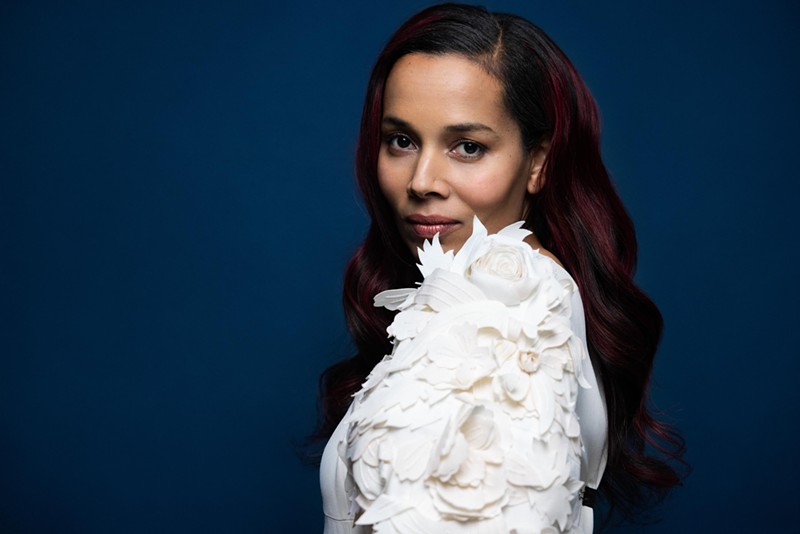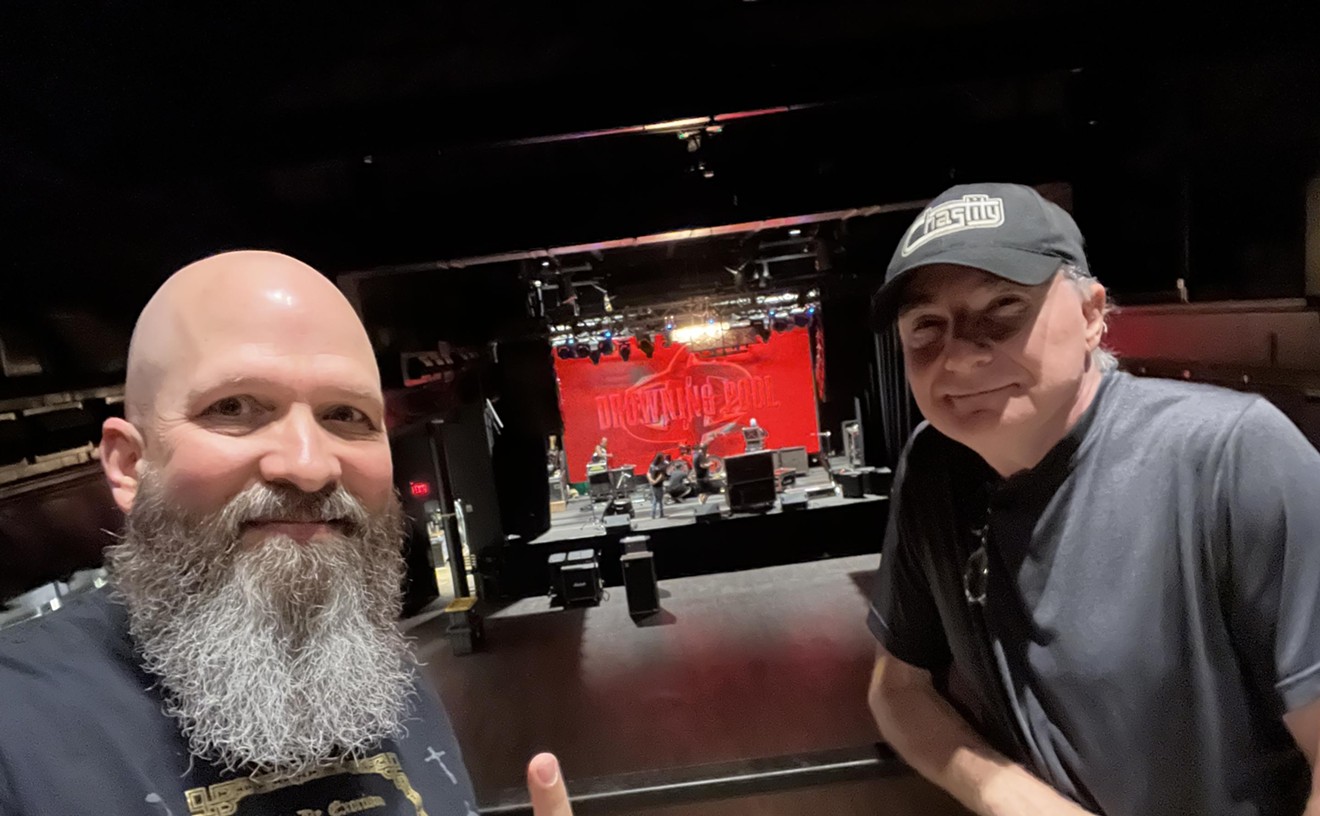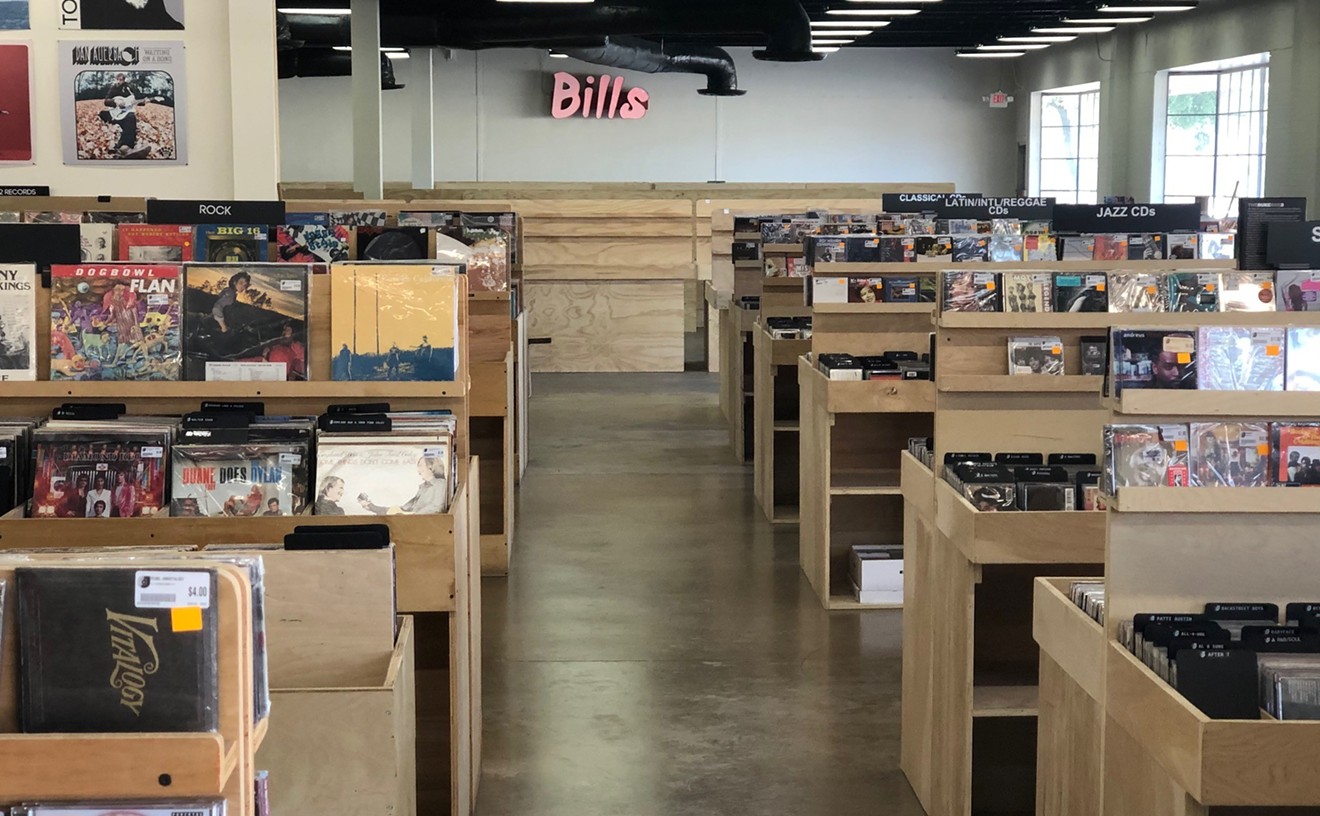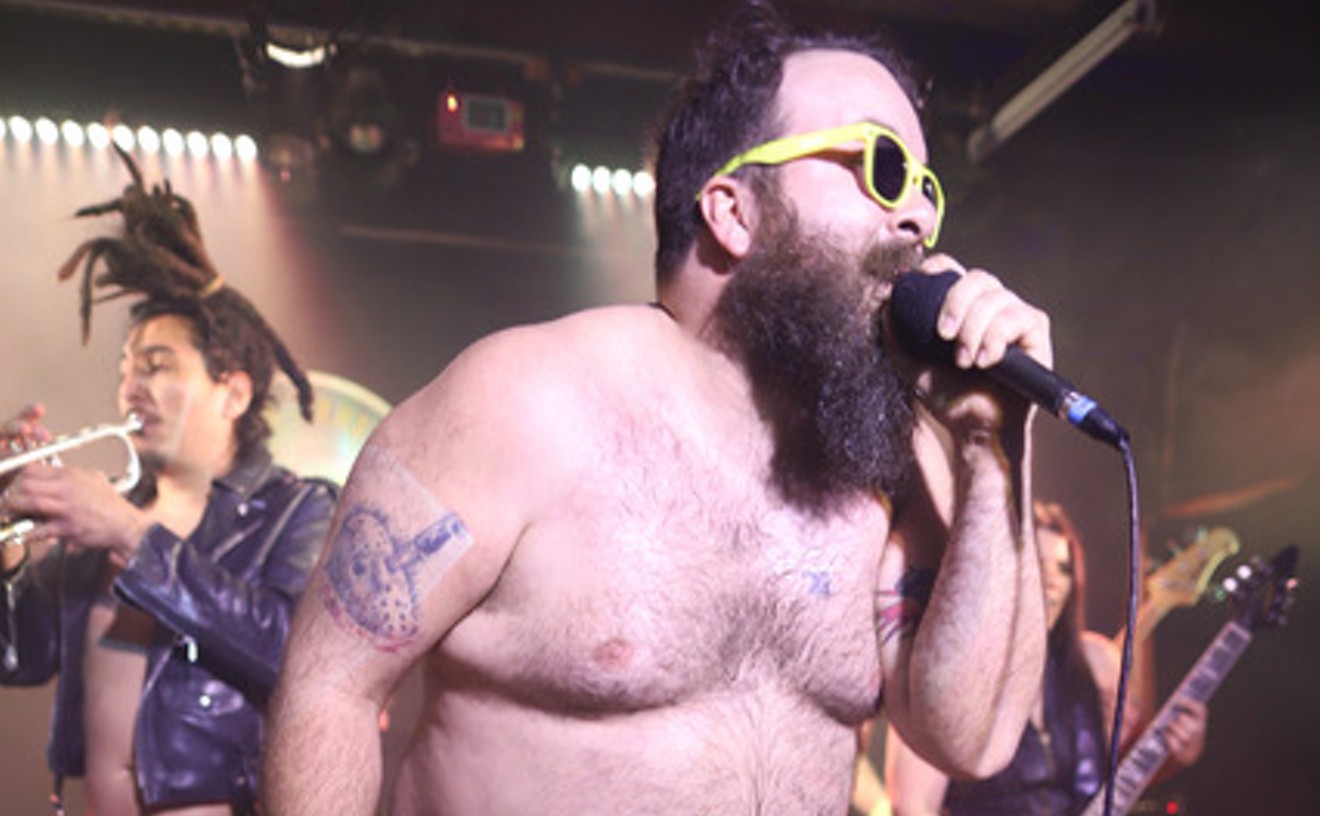“We’ve come to the end of the evening’s symposium,” cracked the 47-year-old North Carolina native to appreciative chuckles. “Every good thing in this country came from mixing — there’s a lot of bad stuff, too, but I’m talking about the good stuff.”
In the space of just a couple sentences, Giddens deftly articulated the roughly 100 minutes of music preceding her observation. Even if she had never uttered a word about it, the value of synthesizing disparate influences, sounds and perspectives was repeatedly made plain throughout her masterful performance.
Tuesday’s showcase was the multi-hyphenate talent’s first appearance in Dallas in nearly a decade — she was just a few days shy of it being seven years to the day since she last appeared here, in May 2017 at the Kessler Theater. For all the co-founder of the Carolina Chocolate Drops has achieved in the interim (a MacArthur Foundation “genius” grant in 2017; a Pulitzer Prize for Music in 2023; contributing to Beyonce’s latest single, “Texas Hold ‘Em,” to name just a few), Giddens kept the focus squarely upon her music throughout, although she also took care to note the historic environs: “What a cool renovation,” she observed near the top of the show. “This place has a lot of history — we’re honored to be here tonight.”
Giddens is currently on the road supporting her most recent album, 2023’s You’re the One, which, remarkably for an artist cruising toward her second decade of activity, stands as her first collection of original material. The Giddens-penned work — “Wrong Kind of Right,” “If You Don’t Know How Sweet It Is” (which she introduced by praising the “saltiness” of early Dolly Parton records) and “Hen in the Foxhouse,” among others — were of a piece with her catalog as a whole, which is to say they are resolutely American-sounding and American-feeling — a polyglot blend of happy and sad, sexy and severe, reverent and rowdy.
Americana Pie
Giddens, who alternated all night between banjo and fiddle, is possessed of a lithe soprano voice, which can soar high and grab low, wrapping itself around a lyric to convey a delicate emotion or spitting out jazz-inflected scatting with abandon. It was a marvel to watch her shift from breezy audience interaction — such was the night’s elasticity that she could hold forth about everything from the infuriating inequity of the prison-industrial complex and the abject pain at the core of America’s founding to Dr. Who — to stirring performances like “Another Wasted Life,” based upon the tragic story of Kalief Browder, the Aretha Franklin-esque funk bomb “Too Little, Too Late, Too Bad” or “We Could Fly,” a completely shattering folk song about the cruelty of human bondage.At every turn, the audience was in lockstep with Giddens and the musicians arrayed alongside her, clapping, hollering and, during “Backbone,” boisterously singing the chorus back to her. Reams could be written about the proficiency of Giddens’ bandmates: Multi-instrumentalist Dirk Powell got a moment in the spotlight early, doling out some vibrant Creole giddiness; Congolese guitarist Niwel Tsumbu’s kinetic work crackled like sparks around the edges of even the most contemplative moments; backing vocalist Charley Lowry was simply stunning (and contributed a superb opening set), and multi-instrumentalist Francesco Turrisi also had multiple instances of show-stopping flair.
Whatever the mode Tuesday night — jazz, soul, country, folk, Zydeco or rap — Giddens was at ease, in command of the tangle of influences at hand and capable of creating something thrillingly new. Giddens frequently embodied that which is most desirable in an artist: a person open to all possibilities, attuned to inspiration from wherever it may flow, mindful of the past but always pushing forward.
The heady sensation of honoring history even as it’s being altered cemented Giddens’ place along the folk music continuum — a thoroughly modern artist who is as preoccupied with self-expression as she is leaving the world better than she found it. In that way, she is reminiscent of the era when folk music was a profound force for change, a time of tremendous upheaval and pain and beauty and tumult in the U.S. As it was then, so it is now.
To scan through social media Tuesday night, as Giddens spoke about the injustices and brutalities in the marrow of our country’s bones, and as heavily armored police descended upon the campus of Columbia University in New York City, turning a largely peaceful student protest ugly and ominous, was to be reminded the past is never past.
Rhiannon Giddens, in her own luminous, extraordinarily talented way, illustrated the value of remembering what came before, using history as a springboard rather than a restraint, and understanding it is only through mixing — collapsing the walls between us, and embracing unity over division — that the truly “good stuff” about the U.S. will rise to the fore.












